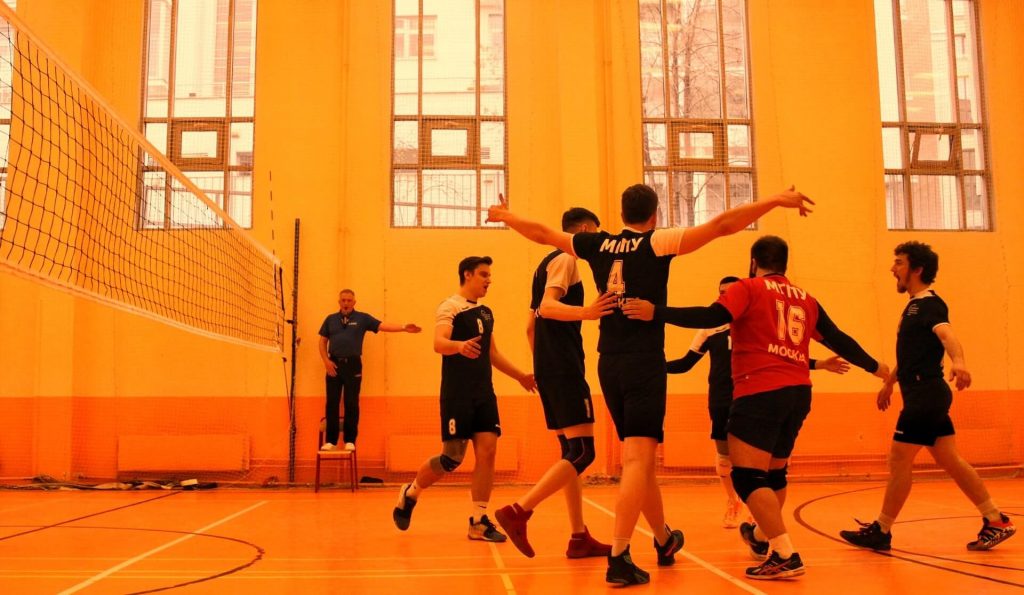Court and beach volleyball offer plenty in the way of healthy exercise and fun in the sun. However, if you want to shake things up a bit, there’s always the possibility of trying out some lesser-known volleyball variations.

There are at least eight known variations of volleyball. You may be familiar with some of them, but others will likely be games you have not heard of. If you want to learn about all of them, read on to find every classic and modern variation from around the world.
Footvolley
Created in Brazil, footvolley is basically the same as beach volleyball, except for the fact that you’re not allowed to use your arms and hands. Think of it as soccer with a volleyball net.
Because you’re limited to using your legs, chest, and head, it’s a highly challenging variation that requires significantly more body control than a standard game. It’s a bit taxing for casual play, but it’s one of the best variations for fitness.
Hooverball
As the name suggests, Hooverball was popularized by none other than Herbert Hoover, the 31st President of the United States. Hoover’s variation replaces the volleyball with a medicine ball.
As you might imagine, this makes Hooverball quite a demanding sport. Unlike footvolley, it’s more about brute strength and stamina than agility. If you’re a bit short on upper body strength, this will get you in tip-top shape in no time.

Sepak takraw
Sepak takraw is a popular Asian variation of volleyball. It originated in Malaysia and Thailand, and the name of the sport is a combination of both countries’ languages. It’s a highly competitive sport that shares the same fundamental rules as footvolley.
The ball used is known as a rattan ball, but a regular ball is perfectly acceptable as a substitute. The game is typically played with two teams of three, and each team can only hit the ball three times before it has to go over the net.
Blind volleyball
If you can’t see the opposing team, how do you know where the ball is going to come from? Essentially, that’s the premise behind blind volleyball. All you need for this variation is a way to block teams from seeing each other.
Hanging a large sheet over the top of the net tends to be the simplest method, but you could easily go for something more solid like cardboard or plywood. The rules of the game stay the same, so your main challenge will be the setup.
Seated volleyball
Seated volleyball is based on a combination of volleyball and a German ball game called “sitzbal.” The main rule is that all players must remain seated throughout the game. It’s a neat twist that has turned out to be quite the hit worldwide.
This variation was invented in the 1950s by Danish athletes. It didn’t take long for it to become an official sport of the Olympic Games, and it’s now one of the most well-known alternate formats you can play.

Newcomb ball
Newcomb ball is volleyball at a slower pace. It’s an excellent tool for learning how to play, as it gives you the opportunity to learn the rules and gain experience on the court without the overwhelming speed of a regular game.
The only difference between Newcomb ball and regular volleyball is that you have to catch the ball before it can be returned. It was a popular variation back in the day, but it lost relevance during the 1920s and hasn’t seemed able to gain much traction since then.
Prisoner ball
Prisoner ball isn’t based on points; the only way to win is to get rid of the enemy team. It’s an elimination-style game where each point is a player, and every time you lose a point, a player is sent to ‘prison.’
As teams get closer to elimination, the stakes get higher, and tension ramps up. What’s more, some rulesets allow players to return from elimination if their team scores a certain way, adding to the excitement and creating lengthy back-and-forth matches.
Buka ball
Several variations of volleyball take your hands and arms out of the equation, and Buka ball falls squarely in that category. However, unlike Sepak Takraw and footvolley, the only appendages you’re allowed to use are your feet. If you thought other variations were challenging, wait until you try Buka ball. The ball is made of plastic, which makes it a bit easier for players to control, but the fact that you can only use your feet is more than enough of a challenge.
1 comment
All of this actually sounds fun to play with friends, I can only imagine the chaos of foot volley and how much we’d all fall down on our butts haha